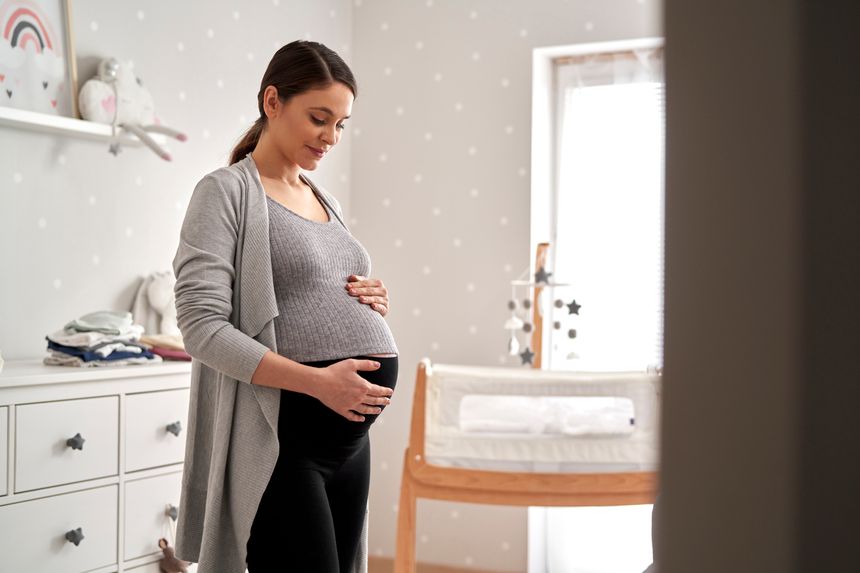As new figures show a rise in serious childbirth injuries to mums what does this mean for maternity safety?
Recent analysis has revealed a deeply concerning trend - the number of severe perineal injuries tears suffered by mums during childbirth has increased by more than 20% since 2021, now affecting nearly 3% of all births.
According to NHS data, almost 29 in every 1,000 births resulted in a third or fourth degree tear in 2024 compared to 23.5 in 2021. This equates to 7,995 reported cases last year, alongside a rise in readmissions post-birth in 2024 to more than 5%.
What is a perineal injury?
The perineum is the area between the vaginal opening and the anus. During vaginal birth, this tissue stretches to allow delivery, but sometimes it tears.
The degree of tear are classed as the following:
- First-degree tear: Skin only.
- Second-degree: Skin and muscle.
- Third-degree: Extends into anal sphincter.
- Fourth-degree: Extends into rectal lining.
The impact of OASIs
Most women who experience minor tears heal quickly and without any treatment.
However, severe tears - third and fourth degree - which are also called Obstetric Anal Sphincter Injuries (OASI), can cause faecal incontinence, chronic pain, sexual dysfunction, psychological trauma and can impact family relationships and employment.
Recovery often requires surgery, and even then, many women live with permanent symptoms, especially if the tear was undetected or there isn't adequate follow-up and support.
OASI injuries are more common with a prolonged second stage of labour, in first time mums, when a baby is born back to back, a forceps delivery, if a baby has a birthweight greater than 4kg or if the mum is of Asian ethnicity.
Why are birth injuries increasing?
Experts link the rise to several factors including staffing shortages and resource pressures in maternity units, increase in complex health needs, inconsistent application of the OASI Care Bundle designed to reduce severe tearing and cuts to maternity safety funding.
Chloe Oliver, the chief executive of The MASIC Foundation, the only multi-disciplinary UK charity to support women with OASI injuries, which Irwin Mitchell works with in campaigning to improve maternity safety, says the rise may also partly be attributed to an increase in improved OASI detection rates in addition to better reporting of figures by Hospital Trusts.
However, she adds the charity continues to hear too many stories from women whose injuries have been missed and tears being identified and repaired immediately is key to mums having a chance of making a good recovery.
Positive progress – Spotlight on maternity units and PPHS
Despite these stark figures and challenges, positive improvements are happening across NHS maternity units. Perinatal Pelvic Health Services (PPHS) are being rolled out nationally, offering early physiotherapy and specialist clinics and there is a much greater focus on OASI education and awareness.
My own birth trauma experience
When I sustained a severe perineal injury 17-years-ago during the birth of my first child no-one was talking about birth trauma or bowel incontinence.
I was left with permanent symptoms including incontinence and pain, and my injuries also had a significant impact on my career. After more than a decade I've been fully supported back into work and now collaborate with healthcare professionals, charities, those with lived experience and other key stakeholders to campaign for improved maternity outcomes for all women.
There are many passionate perineal midwives, obstetricians and pelvic health physiotherapists who are trying to work with limited resources to improve outcomes.
Trusts need to be supported and resourced to use screening tools to adequately assess risk, to implement the OASI care bundle, to improve antenatal information and to improve training so that women are not at risk of the postcode lottery of care.
Breaking the taboo around birth injuries
Stigma around OASI injuries and bowel incontinence means many women often suffer in silence due to societal taboo and shame which can be extremely isolating.
I'm privileged to be able to provide peer support to Irwin Mitchell's clients and signposting to vital charities and support groups as well as shining a spotlight on these injuries.
At Irwin Mitchell we're also proud to work closely with organisations such as the MASIC Foundation on initiatives such as a recent vital webinar on treatment pathways and how to access the right care after an OASI, as well as hosting our first perineal injury conference in conjunction with MASIC, The Mummy MOT and Gill Castle, the first person to swim the channel with a colostomy.
The conference was a positive space for education, awareness and open dialogue for individuals to connect with support groups, specialist services and leading voices in maternal health.
At Irwin Mitchell we're committed to supporting clients access the specialist support and rehabilitation they need to try and overcome a birth trauma injury the best they can, but also advocate for systemic improvement in maternal safety.
I'm hopeful that the rapid national maternity investigation will continue to prioritise perinatal pelvic health services to reduce the rates of severe perineal injuries.
Find out more about Irwin Mitchell's expertise in supporting mums affected by severe perineal injuries at our dedicated birth injury to mums section.

